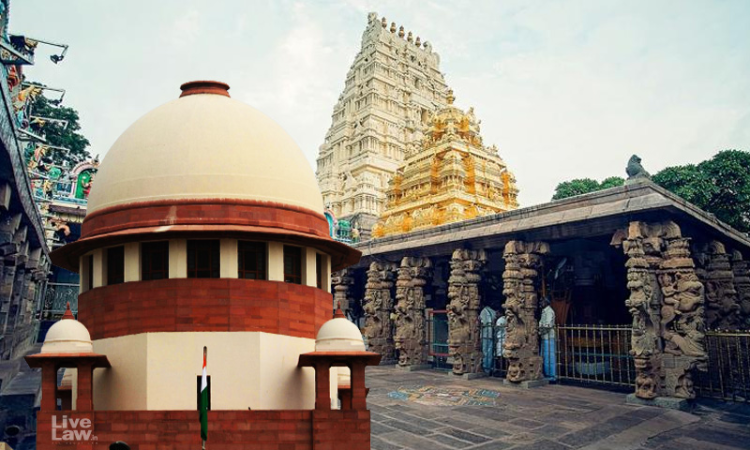Supreme Court Issues Notice On Plea Challenging Telangana Hindu Religious & Charitable Endowments Act
Gyanvi Khanna
7 March 2024 5:05 PM IST

Next Story
7 March 2024 5:05 PM IST
Today (March 07), the Supreme Court issued notice in a petition challenging the constitutional validity of the Telangana Hindu Religious and Charitable Endowments Act 1987. The petition was preferred on behalf of the Sri Veerabhadra Swamy Temple priests, known as the Machileshwarnath Temple, against the State of Telangana. Apart from challenging the constitutionality of the Act,...
